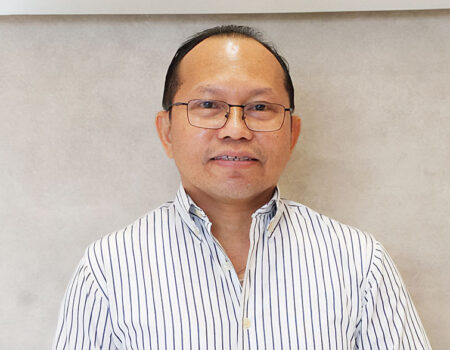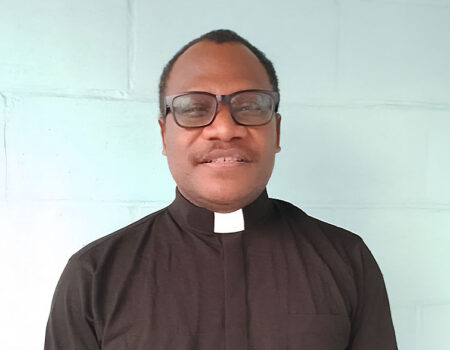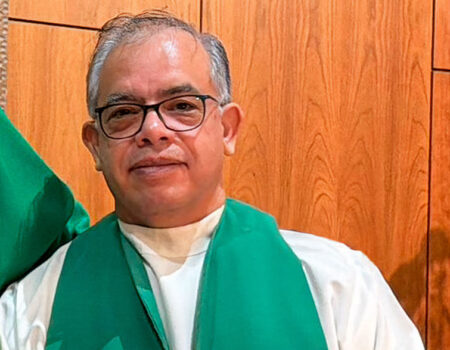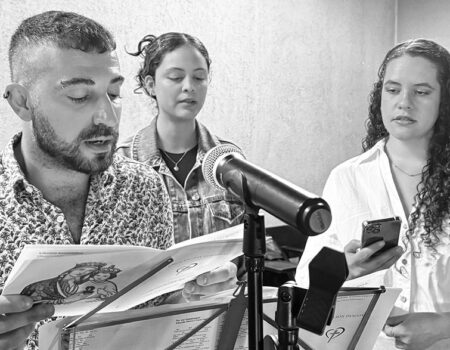Everywhere: Vocational discernment MSC in the evidence of a pluralistic church
Sunday March 30, 2025

The struggle of the scholar and man of God Meinrad Hebga in the middle of the last century against the dogma of the single canon, of the adequate and universal prototype of civilisation and culture[1] seems to have been successful nowadays. The rejection of Western-style democracy and the demands for the right to self-determination of peoples here and there in the world are proof of this. The Church, which is also a sociological reality, is suffering the torments of these upheavals. The echo of the conclusions of the last synod of the Church of Germany and the reception of the Déclaration Fiducia supplicans in sub-Saharan Africa, to mention only this part of the world, show that pastoral responses to topical problems cannot claim to be universal[2]. This leads us to recognise the evidence of a plural Church in which, without undermining the unity of faith and doctrine, the pastoral creativity and legitimate concerns of particular churches or cultural units should be mutually taken into account and respected in the same way by all. In this one and plural Church, vocational discernment must be anchored. But how?
The Emmaus document and the consideration of diversity. From the very beginning, the objective of the new document, which provides general guidelines on initial training, is clearly stated: ‘in view of the changes that have taken place over the last 30 years, the initial training documents of the MSC had to be updated and adapted to better meet the challenges of today’s world’[3]. The awareness of the change, of the emergence of new societal issues and the desire to integrate them into the training process is clear. More evident is the desire for decentralisation and contextualisation of the support and training of future Missionaries of the Sacred Heart. Indeed, from the pen of the Superior General, we can read this: ‘The Emmaus document is meaningful insofar as it is an instrument of life and work. (…) This will require that each entity, culture and geographical zone, continent, region, make the necessary adaptation processes to its own social, religious, cultural, continental and congregational reality.’[4]
This openness imposes the duty on each cultural unit of the Congregation to aggiornamento and to identify pastoral priorities in order to integrate them into the process of vocational discernment and formation. Therefore, it is evident that the form and even the substance of discernment will undergo a contextualised evolution, both for the guide and for the young person in discernment.
The need for a salutary openness in discernment. Highly contextualised training can undermine the missionary character of our Congregation. This risk is real, but it seems to be taken into account in the Emmaus document. Indeed, training with a strong identity focus could produce ‘geographical’ MSC, which would be contrary to the very nature of our Congregation (cf. Cs4 and 24). To avoid this risk, the parameters would have to be adjusted to train Missionaries of the Sacred Heart who are indeed rooted in one culture but open, aware of the pastoral challenges of other skies and ready to serve anywhere in the world. This requires openness in the accompaniment and even in the way of contextualising initial training. The latter should be done with the priority of the ‘We congregational’ in the background. In other words, contextualisation must not obscure the challenges with universal issues and the legitimate concerns of entities that see or address the same issues differently. This effort to be more open could continue among young people themselves. Using digital technology, supervisors could help young people to create mechanisms for sharing and learning with each other. Indeed, through social networks, young people in training from different provinces or regions can be encouraged to form relationships in which they share their experiences, their convictions and the challenges they face. This experience could enrich them mutually and contribute further to a certain openness.
Nowadays, the plurality of the world and the different ways of being Church are a given. A reality that the congregation of the Missionaries of the Sacred Heart experienced from the very beginning through the decentralised nature of its organisation. One of the challenges today is to enrich our ‘ecosystem’ as a congregation in a healthy way. That is to say, we should work to ensure that the ecosystem is not deprived of our particularity and, at the same time, to ensure that this particularity helps the other elements to grow. Vocational discernment is necessary in this reconfiguration process.
Romain Danem, MSC
[1] Cf. HEBGA Meinrad, ‘Plaidoyer pour les logiques d’Afrique noire’, in G. Calame-Griaule et al., Aspects de la culture noire, Paris, Fayard, 1958: 104-116. [2] Cf. Synthesis of the African Episcopal Conferences to the Fiducia Supplicans Declaration. [3] EMMAÜS, Document on initial training MSC, 2023, p. 3. [4] Ibid.
Photo: www.freepik.com – eugene barmin





